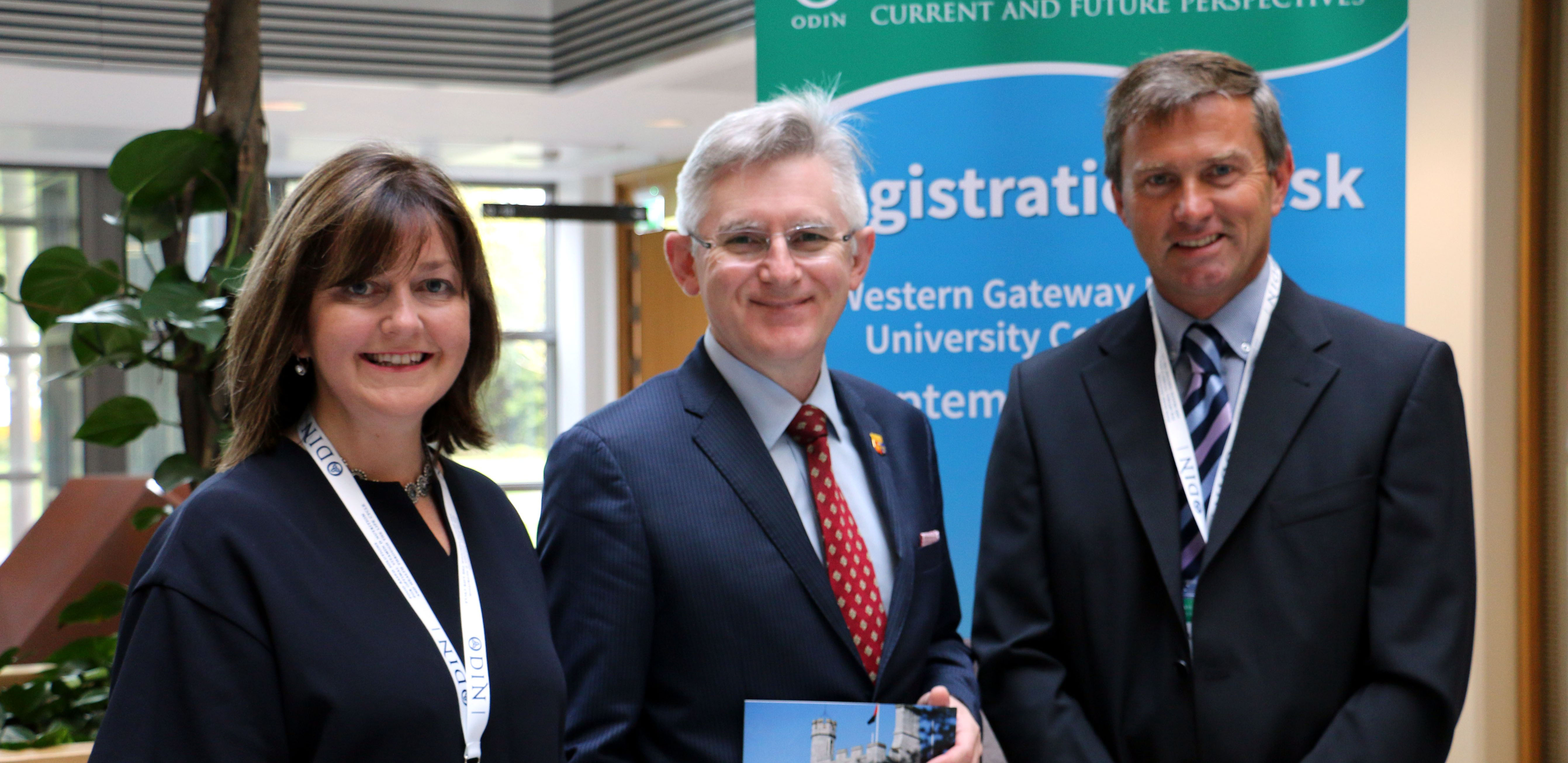UCC plays host to international scientific conference on vitamin D

The Cork Centre for Vitamin D and Nutrition Research, based in the School of Food and Nutritional Sciences at UCC, is hosting an international conference on vitamin D and health throughout life this week.
Prof Kevin Cashman and Prof Mairead Kiely, joint directors of the Cork Centre for Vitamin D and Nutrition Research, are delighted to welcome more than 140 senior and young investigators to Cork for the Vitamin D & Health in Europe: current and future perspectives conference, taking place today (September 5) and tomorrow, to mark the near-completion of their four-year ODIN project on vitamin D.
Dr Mona S. Calvo begins the afternoon session talking about #vitaminD #fortification pic.twitter.com/D6C5WBbUdn
— Vitamin D ODIN (@Vitamin_D_ODIN) September 5, 2017
Proud of our excellent & gender-balanced programme of speakers & #science @Vitamin_D_ODIN conference @ManelWatchIre https://t.co/vxB3dLUgzX
— Mairead Kiely (@Kiely_Mairead) September 4, 2017
ODIN [Food-based solutions for optimal vitamin D nutrition and health throughout life] was funded by the European Commission in 2013, with a budget of €6M. With 30 participants from 18 countries, ODIN is currently the largest vitamin D research consortium globally. ODIN set out to develop safe, effective and sustainable food-first solutions to prevent vitamin D deficiency.
Professor Patrick O’Shea, President of University College Cork, opened the conference, which aims to share ODIN research findings and update participants on vitamin D research in Europe, particularly in relation to the central themes of the project - vitamin D deficiency prevention through food fortification and bio-fortification, and vitamin D and health throughout the life-course.
Importance of vitamin D in protecting against a host of health problems. Shining a light on vit D deficiency w/ @EU_H2020 #EUHealthResearch https://t.co/RwYD7ZEmkb
— Yuriko Backes (@Yuriko_Backes) August 27, 2017
Vitamin D deficiency has significant implications for human health throughout life and impacts on healthy growth and development and successful ageing. In 2016, the ODIN project reported the prevalence of vitamin D deficiency in European citizens, at 13%, for the first time. It also identified that 1 in 6 pregnant women in Ireland has vitamin D deficiency and that almost half of newborns in this country are below the minimum internationally accepted threshold.
@aoifenihaodha from @UCC @UCCResearch kicks off the special workshop on novel approaches for prevention of #vitaminDdeficiency through food pic.twitter.com/SO7PbVtoFR
— Vitamin D ODIN (@Vitamin_D_ODIN) September 5, 2017
The beautiful #AulaMaxima - the location for our #vitaminD conference dinner next Tuesday! We cant wait to welcome our delegates to @UCC pic.twitter.com/pwrCfPtlW4
— Vitamin D ODIN (@Vitamin_D_ODIN) August 30, 2017
Moreover, ODIN has identified vitamin D deficiency among older adults as a significant risk for premature mortality and cardiovascular mortality. Through an integrated programme of food science and technology-based studies, nutritional surveys and dietary modelling and clinical research in at-risk population groups, including children, adolescents, adults of ethnic minority, women during pregnancy and lactation and young children, the ODIN project has shown that it is technologically feasible to prevent vitamin D deficiency through food, with immediate and long-term benefits for human health for all European residents.
The conference has brought together world-leading researchers in vitamin D research, as well as representatives from the Irish and European food industry sector, to discuss current research and collaboration aimed at translating research data into knowledge for economic and societal benefit.
Full house in @UCC this morning talking all things #vitaminD for the @Vitamin_D_ODIN conference pic.twitter.com/trZRe9gwAu
— Karen M. O'Callaghan (@KMOCallaghan) September 5, 2017
Delighted to have the president of @UCC opening the @Vitamin_D_ODIN conference this morning #vitaminD @UCCResearch pic.twitter.com/YfldI7e3MH
— Vitamin D ODIN (@Vitamin_D_ODIN) September 5, 2017
